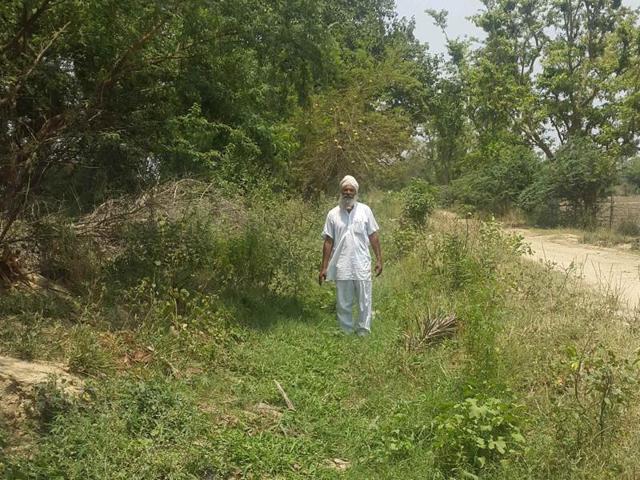Depleting groundwater level deepens water crisis in Punjab
The state is facing acute water shortage as the groundwater is depleting at a higher rate than its replenishment. Policymakers seem to have forgotten the SYL issue and water crisis after getting voted. Despite the Central government water policy that came to force in 2011, the state has not set up any water regulation authority to date.
The state is facing acute water shortage as the groundwater is depleting at a higher rate than its replenishment. Policymakers seem to have forgotten the SYL issue and water crisis after getting voted. Despite the Central government water policy that came to force in 2011, the state has not set up any water regulation authority to date.

With increasing ‘dark zones’, where water recharging process is taking place at very slow rate, the public health and water availability are receiving a blow. “Every two years, we have to dig around 20 feet deeper,” said Paramjit Singh, a farmer from Kotli village.
The state already has more than 14 lakh tubewells and will get 1.5 lakh additional tubewells this year. Moreover, the NGT had lifted stay on tubewell connections after being convinced by the government that the power connections will be given to convert a diesel-run tubewell into powerrun facility and had also imposed a penalty on those who are using diesel generators despite getting power connection.
“When there is discussion on water crisis in Punjab, a farmer is projected as a villain, though the truth is that water depletion from industries and households goes on 24x7x365,” said Inderjit Singh Saholi, a farmer.
“There is no check on wastage and contamination of the groundwater due to industries. The provision of penalty for washing cars in households and other wastage checks remain on paper. The seepage of toxic leachate into groundwater near garbage dump yards is a grave area of concern,” said Prithwi Singh, a farmer and a naturopath.
As per sources, several irrigation drains taken out of canals have vanished due to lack of maintenance and corruption.
“Canal water is more suitable than groundwater for crops, but the irrigation drains are blocked with weeds, forcing us to use tubewells,” said Meharbaan Singh Saholi. “I had irrigated my fields last year with canal water using tankers. The plantation looked far healthier and gave better yield, but it is costly to get tankers on rent,” he said.
“Nothing substantial has come up over the years except the Punjab Preservation of Sub-soil Water Act-2009 for solving water crisis,” said a progressive farmer, Bir Devinder of Kallarmajri village. Unutilised or polluted surface water bodies result in more dependency on groundwater for daily needs. “Overuse of fertilisers has resulted in lesser proliferation of rainwater” Bir Devinder added.



